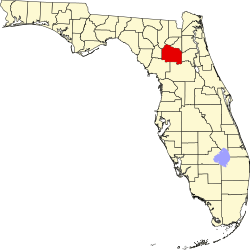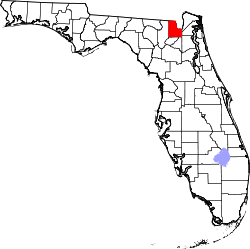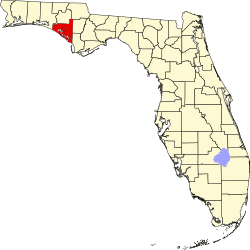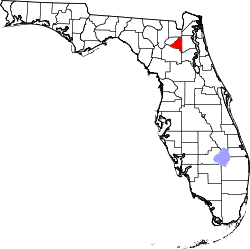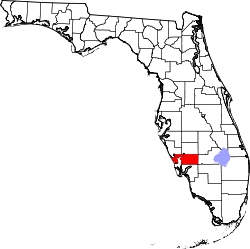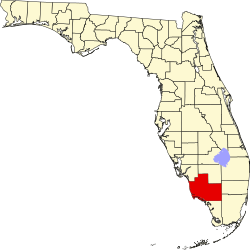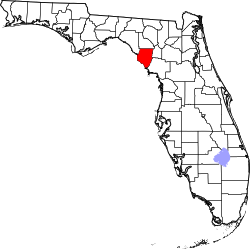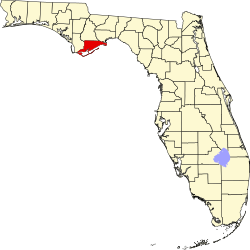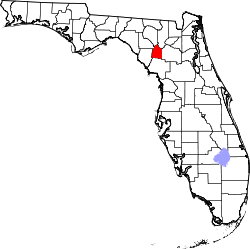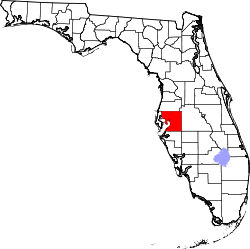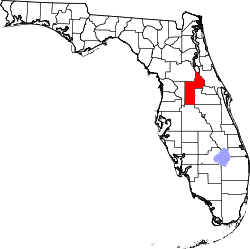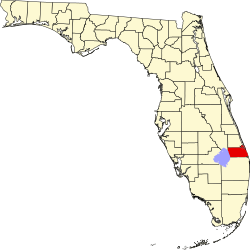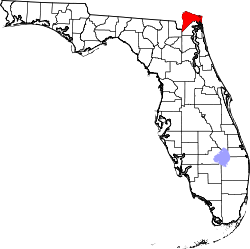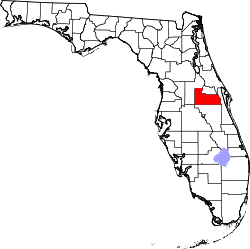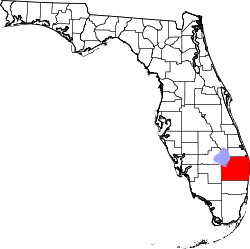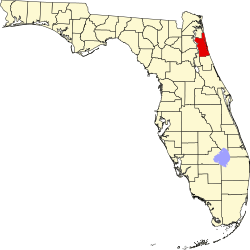Top Qs
Timeline
Chat
Perspective
List of counties in Florida
From Wikipedia, the free encyclopedia
Remove ads
There are 67 counties in the U.S. state of Florida, which became a territory of the U.S. in 1821 with two counties complementing the provincial divisions retained as a Spanish territory, Escambia to the west and St. Johns to the east. The two counties were divided by the Suwannee River. All of the other counties were created later from these two original counties. Florida became the 27th U.S. state in 1845, and its last county was created in 1925 with the formation of Gilchrist County from a segment of Alachua County.[1] Florida's counties are subdivisions of the state government. Florida's most populous county is Miami-Dade County, the seventh most populous county in the nation, with a population of 2,701,767 as of the 2020 census.[2]

0–49,999
50,000–99,999
100,000–199,999
200,000–299,999
300,000–499,999
500,000–749,999
750,000–999,999
1,000,000–1,499,999
1,500,000–1,999,999
2,000,000+

In 1968, counties gained the power to develop their own charters.[3] All but two of Florida's county seats are incorporated municipalities: the exceptions are Crawfordville, county seat of rural Wakulla County,[4] and East Naples, located outside Naples city limits in Collier County.
The names of Florida's counties reflect its cultural heritage. Some are named for Confederate political leaders and Spanish explorers, marking the influence of Spanish sovereignty, while others are named for Christian saints, Native American sites, as well as political leaders of the United States. Natural features of the region, including rivers, lakes and flora, are also commonly used for county names. Florida has counties named for participants on both sides of the Second Seminole War: Miami-Dade County is partially named for Francis L. Dade, a major in the U.S. Army at the time; Osceola County is named for the war's native Muscogee-Seminole resistance leader Osceola.[5]
Population figures are based on the 2024 vintage Census population estimates. The population of Florida is 23,372,215, an increase of 8.5% from 2020. The average population of Florida's counties is 348,839; Miami-Dade County is the most populous (2,838,461) and Liberty County is the least (7,955). The average land area is 805 sq mi (2,085 km2). The largest county is Collier County as per 2020 Census bureau of 1,998.32 sq mi.
The Federal Information Processing Standard (FIPS) is used by the U.S. government to uniquely identify counties and is provided for each entry. These codes link to the United States Census Bureau's "quick facts" for each county. Florida's FIPS code of 12 is used to distinguish from counties in other states. For example, Orange County's unique nationwide identifier is 12095.[6]
Under the Florida Constitution the state government has the power to create and abolish counties. Each county in Florida is required to have a county seat under the state constitution.[7]
Remove ads
Counties
Remove ads
Former counties
Fayette County was created in 1832 from the portion of Jackson County east of the Chipola River, with its county seat at Ochesee (now in Calhoun County east of Altha).[14][15] In 1834, it was merged back into Jackson County.[16]
Renamed counties
Summarize
Perspective
Five counties in Florida have been renamed. Most renamings occurred between 1845 and 1861, during the first sixteen years of Florida's statehood. One occurred in 1997, when Dade County changed its name to Miami-Dade County.
Proposed counties
Remove ads
See also
Further reading
- Utley, Geo. B. (1908). "Origin of the County Names in Florida". Florida Historical Society Quarterly. 1 (3): 29–35. Retrieved May 25, 2018.
- "FLORIDA COUNTY GOVERNMENT OVERVIEW" (PDF). ce.naco.org. National Association of Counties (NACo). 2022. Retrieved January 3, 2025.
References
Wikiwand - on
Seamless Wikipedia browsing. On steroids.
Remove ads


